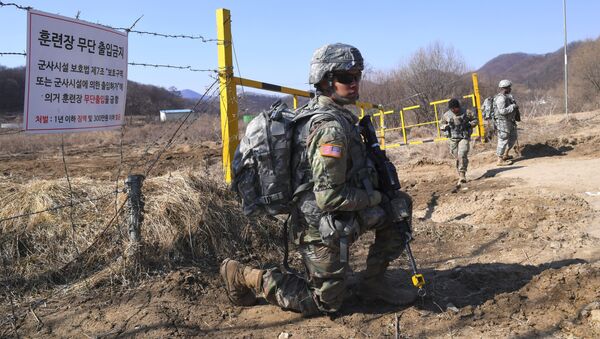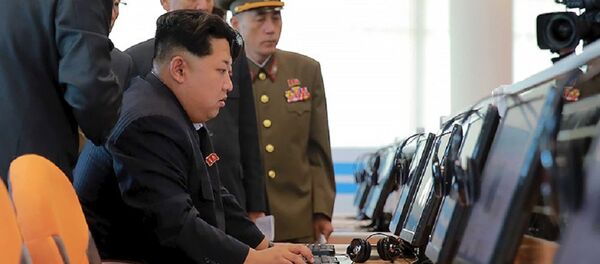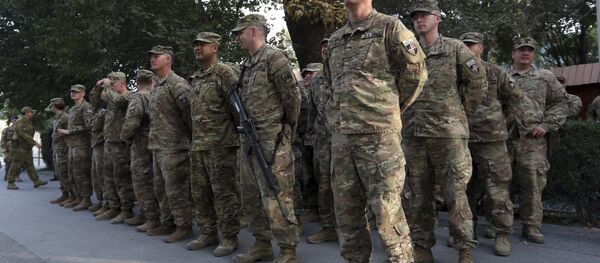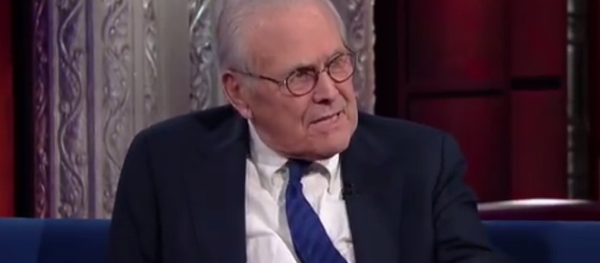US Secretary of Defense James Mattis unveiled the new National Defense Strategy with a speech at Johns Hopkins School of Advanced International Studies on Friday.
Mattis said the primary focus of US national security had shifted from fighting terrorism to great power competition, primarily with China and Russia.
However, the new strategy and Mattis in his accompanying comments give no sign that US policy towards North Korea and Iran will mellow as a consequence. Mattis referred to the governments of those two nations as "rogue regimes" and claimed that their continuing actions that threaten regional, and even global stability.
US STILL STALEMATED IN AFGHANISTAN, IRAQ AND SYRIA
The United States and its allies had made no lasting, significant progress in any of the three conflicts, the first of which in Afghanistan began more than 16 years ago University of Pittsburgh Professor of International Affairs Michael Brenner said.
"The United States has made no gains in any of these places," Brenner said. "We have failed everywhere while our actions have produced instability and generated new hostile forces [such as] the Islamic State."
Brenner predicted the longer the United States maintained a military presence in the three countries and the more Washington tried to influence their domestic politics, "the more serious those threats would become."
"None of the senior American policy-makers have a sense of, or aptitude for strategy. They are superficial, one-dimensional thinkers who demonstrate an appalling lack of understanding about the world they presume to dominate," he said.
"You identify another power as a threat without specifying why or how. You define it in military terms. You expand your budget, weapons and bases to intimidate, deter and… defeat it. That becomes the sum all of foreign policy," he said.
However, Mattis’ perspective and the new strategy did not recognize the real world within which the United States functioned, Brenner warned.
"In today's environment, this approach represents a gross deformation of realities. The United States is more secure today than at any time in its history. The challenge posed by China is political and economic — not military," Brenner said.
TRUMP WANTS US ENGAGED IN LESS CONFLICTS DESPITE PROCLAMATIONS IN NEW DEFENSE STRATEGY
The new strategy confirmed the constraints on President Donald Trump in his efforts to dial back US interventionist policies and dangers of new conflicts around the world, retired neurosurgeon and political commentator Professor John Walsh said.
"It was a welcome move by Trump to denounce the interventionist policies and the regime change operations of his opponents, but one could not expect too much from him, namely a policy that really rejects the demands of the military-industrial complex," he said.
Even the hawkish elements in the new strategy needed to be understood as part of Trump’s efforts to appease the super-hawks in the US national security establishment while still acting to reduce US involvement in overseas wars at the same time, Walsh explained.
"So expect a lot more contradictory moves from Trump so long as he is doing battle with the Deep State. The contradictions will end only if Trump capitulates to his foes — or defeats them," he said.
"This means that Trump had to make contradictory moves and will continue to do so," he said.
On April 4, 2017, Trump had approved a pinprick attack on the Syrian air force base at Shayrat after notifying Russia. But he had also arranged ceasefires within southwest Syria and terminated CIA’s aid to the Islamists fighting to topple the government of Syrian President Bashar Assad, Walsh recalled.
"That airstrike of April 4, properly understood, did not target Assad, but was aimed at Trump’s domestic adversaries," he said.
Trump’s policies in dealing with North Korea were also more cautious and responsible than the US media described them, Walsh pointed out.
"In Korea… Trump tweets tough talk. But meanwhile negotiations have gone forward, and the two Koreas are using the Winter Olympics for a kind of replay of ping-pong diplomacy. So again Trump can look tough and claim that his tough talk is responsible for the negotiations," he said.
Trump’s controversial and insulting tweets against North Korean leader Kim Jong Un were not primarily about him at all, Walsh stated.
"In reality his insulting tweets are not aimed at Kim but at domestic hawks," he said.
The current talks between North and South Korea that were reducing tensions could only have taken place with the tacit approval of the United States, Walsh concluded.





